Registration and coffee
Infralogic Data presentation
Utilising insights from Infralogic, find out the most up-to-date market trends and gain an understanding of the direction of the renewable infrastructure energy market by 2024. Please sign into your community account to download the data pack.
Opening keynote – The UK’s Energy Infrastructure Programme: current positioning and vision for the future
In this session, the keynote speaker will review the UK's energy infrastructure programme with a particular focus on regulated infrastructure assets.
Panel discussion – Floating Offshore Wind: accelerating progress and driving growth
It is estimated that by the mid-2030s 20% or more of new offshore wind could be floating. This calls for additional fit-for-purpose CfD-like schemes, and similar supporting mechanisms, to be created to specifically foster investment and growth in floating, while still supporting seabed-fixed offshore wind. With the technology having been proven reliable, pilot projects should be ready to be scrapped and commercial units rolled out.Does this mean that industry standards are starting to emerge for floating platform solutions, and is the industry ready to be invested on a commercial scale?
- Legislative and regulatory updates to support public-private cooperation
- The challenge of turning leasing auctions capacity into reality: overcoming supply chain restrictions, price instability and technology and operational risks
- Route to market: integration issues and substation sharing. Is the grid going to be able to connect new floating projects in a timely manner?
- Financing and insuring an industry with higher risks of failure
- Can adding hydrogen production elements revolutionise floating wind economics?
Networking break and morning coffee
Interview - The future of partnerships within renewable energy
In this high-profile interview, our senior speaker will look at how the behaviour of companies, developers and investors within the renewable infrastructure market is changing, and how the current geo-political and economic environment is affecting and promoting these changes.
Panel discussion – Is (clean) hydrogen the key to decarbonisation?
The next step of the global energy transition will be based on the hydrogen economy.
Carbon emission targets in the European Union and other industrialised countries will require massive scaling-up and acceleration of renewable hydrogen production and imports – already 20 million tons will be needed in Europe by 2030 to fast forward the energy transition decarbonisation. The potential of carbon capture enabled hydrogen to reduce emissions is gaining traction, but the viability of the technologies is still to be proven to scale.
- State of the market in UK and Europe: where is demand coming from and what is the expected growth? Incentives and regulatory support at national and supernational level
- Bankability and scalability of green hydrogen projects: how competitive is hydrogen in the current energy market?
- Green hydrogen (from offshore wind farms) as an export product – potential for growth, cost, coupling and grid connection issues, route to market and peak time management
- Investment potential for mass adoption (including transport and heating): is the technology ready? The role of R&D
- Financing the hydrogen supply chain: why is equity raised and not debt? With an increase in capital raised, are lenders ready to get more involved in the market?
Case study - The Zenobē Energy battery storage story
Zenobē Energy has secured a £235 million long-term project finance debt facility structured by NatWest. The company will use the funding to develop its next two grid-scale, transmission connected battery project storage assets in Scotland with a combined capacity of 400MW/800MWh - The loan represents the largest project finance facility for battery storage projects to be arranged in Europe, according to Zenobē. The two projects to be developed are at Blackhillock near Inverness and at Kilmarnock South near Glasgow.
Networking lunch
Panel discussion – Driving energy transition and overcoming delays through grid stability and integration
Grid connection delays have been holding back £15 billions of investment in offshore wind alone over the course of this decade, at the very time when we need to boost energy security as quickly as possible and provide cheap power for consumers. Windfarms, solar arrays and battery projects are stuck in gridlock for up to 15 years as the UK’s electricity grid struggles to keep pace with the appetite for more clean energy – including a car factory being forced to wait until 2037. These delays threaten to undermine decades of work to attract the investment needed to support the UK’s clean energy ambitions.
- Unlocking flexibility and ensuring network access with smart grid communication
- How can private-public sectors partnerships accelerate the deployment of cables and smart grid infrastructure to support increased supply?
- Advantages and disadvantages of converting existing transmission corridors to HVDCs
- Investment opportunities, long term planning and delays: which projects will need to find alternative routes to market (hydrogen)? Is proactive queue jumping a temporary solution to delays?
- Pan-European outlook: how to build partnerships across networks and identify upgrades and the innovative technologies required to achieve an interconnected European green grid
In-Conversation – Maximising ROI with co-located solar and storage facilities
Co-location of renewables assets with storage was rarely considered in the era of subsidies, but it is about to become the norm as investors seek to maximise the value of assets. Capital and operational costs can also be reduced by sharing existing infrastructure, land and grid connections. Combining storage and generation assets also allows more effective utilisation of connected grid capacity, with the savviest investment funds now taking the step of retrofitting storage to their existing renewables projects, therefore making schemes more attractive to investors.
- With half of all solar power to be co-located by 2050, is the long duration energy storage system investment ready?
- What does the end of renewable subsidies mean for investors? Is co-location the answer to project developers’ cost constrains?
- Price arbitrage opportunities and increase in investment returns
- Mitigating risks and limiting profit compression through dynamic containment strategies
- Increasing ROI by reducing CAPEX and OPEX through co-location retrofitting: the case study
Networking break and afternoon coffee
Panel discussion – EV Battery Charging Infrastructure
With the UK’s EV stock growing faster than expected, its growth is outpacing the installation of charging infrastructure. In order to scale smart charging, policymakers must introduce measures to improve consumer standards and protections; accelerate the uptick of smart chargers in the private and public sectors and stimulate innovation. The industry will also need to keep assessing how smart charging works with other parts of the energy system, how it could unlocking flexibility and reduce electricity system costs for all.
Fireside Chat – The evolution of the green supply chain: resiliency and sustainability
Supply chain issues will continue to be a major focus for both developers and contractors and, as the market grows worldwide and the pressure to engage local supply chain grows, there will be big challenges ahead. In particular, these issues seem to be plaguing the renewable energy sector: securing and demonstrating a localised supply chain; technological hurdles; lack of standardisation and decarbonisation of the wider supply chain.
- What are the key challenges of the renewable energy supply chain?
- What are the impacts/consequences on the industry and on projects that you can see?
- The importance of promoting local content development – the impact of the US Inflation Reduction Act on overseas investments and comparison with the domestic market
- What are the investment opportunities and challenges from supply chain disruption? What strategies might market participants use to mitigate the issues? Which interdependencies are currently underinvested and how to allocate resources to limit risk?
- Policy and regulations and the impact of the current lack of standards on insurance, cost and deliverability of contracts
Panel discussion – Financing renewable energy infrastructure
The world’s green energy transition is potentially under threat, as the financial era of rising interest rates is making some projects unaffordable. Estimates suggest that Europe must now find an additional €163 billion to reach net zero by 2050, with figures likely to be similar elsewhere in the world. Sharply higher interest rates have further stressed a model strained by soaring prices for raw materials, higher borrowing costs and investors’ increased risk perception. All this threatens to increase the cost of capital and with potential returns being recalculated, fundraising and M&A processes are also slowing down.
- The cost of financing clean energy in the new high-interest rate, high inflation environment and impact on debt and refinancing of projects?
- How are initiatives such as RENEWFM in EU and the Inflation Reduction Act (IRA) in USA affecting a much slower private equity investment in alternative energy technology?
- Debt opportunities in an increasingly competitive lending market; the green infrastructure debt brand
- Are higher energy prices translating into more generous PPAs? Or is this hitting offtakers’ creditworthiness and increasing counter-party risk for lenders?
- Which renewable sectors are attracting more interest from institutional investors? Will this mean a race to become mainstream for investors?
Chair's closing remarks
Networking drinks
Confirm cancellation
An error occurred trying to play the stream. Please reload the page and try again.
CloseSign-up to join the ION Analytics Community to:
- Register for events
- Access market insights
- Download reports




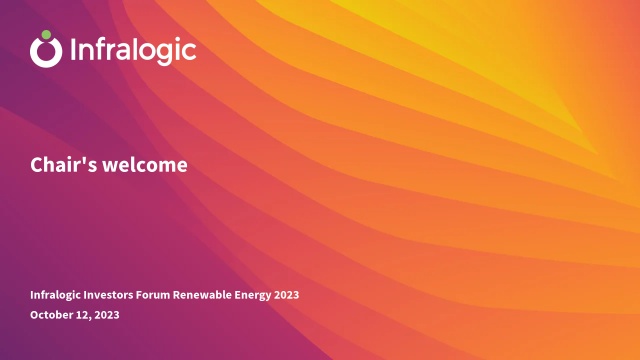 play_arrow
play_arrow

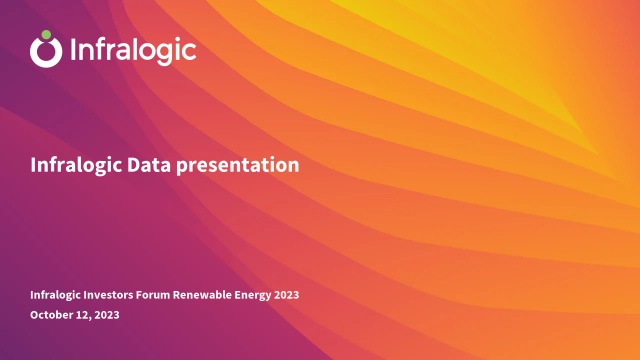 play_arrow
play_arrow

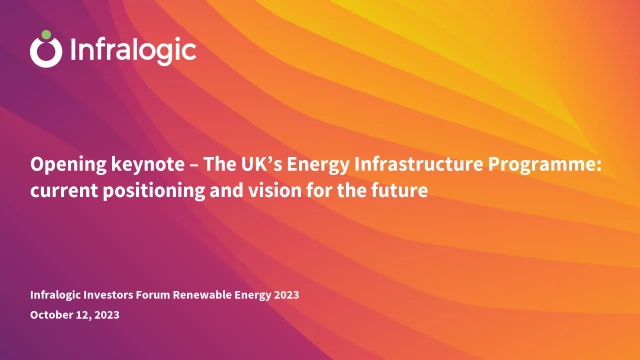 play_arrow
play_arrow



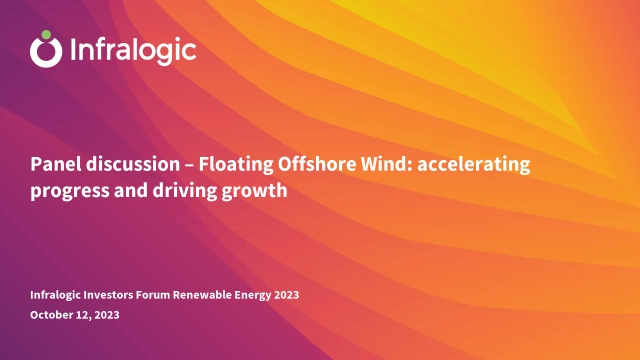 play_arrow
play_arrow


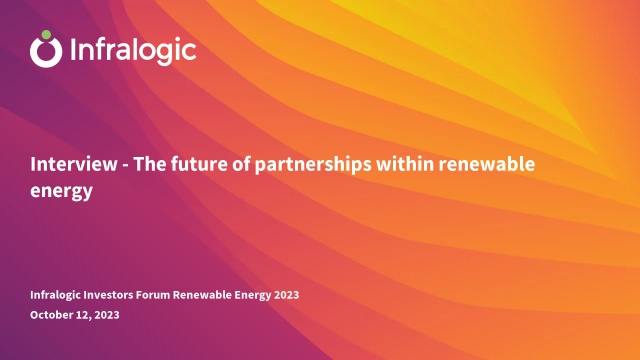 play_arrow
play_arrow



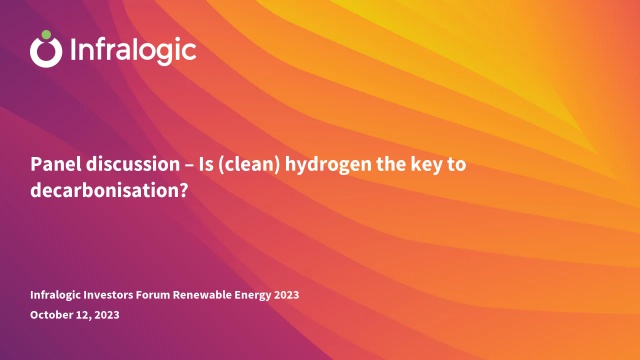 play_arrow
play_arrow


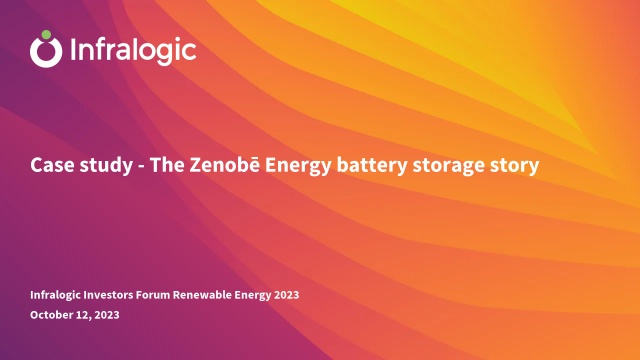 play_arrow
play_arrow









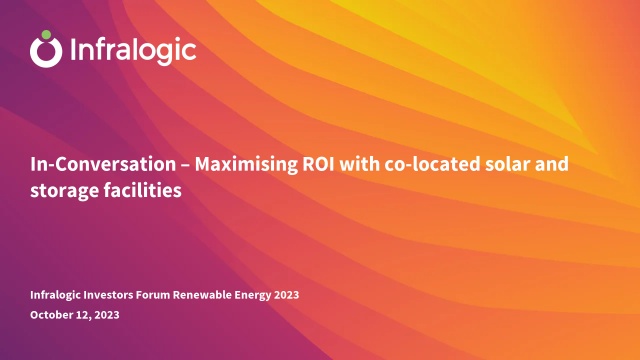 play_arrow
play_arrow




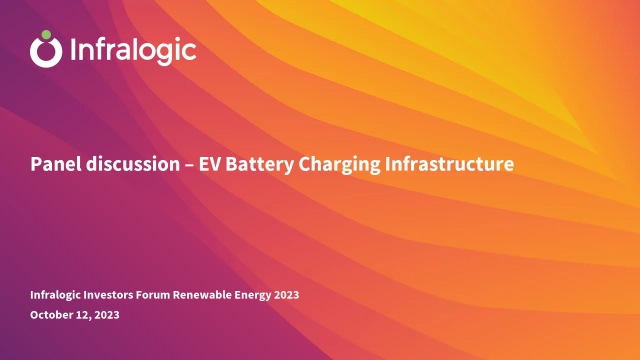 play_arrow
play_arrow




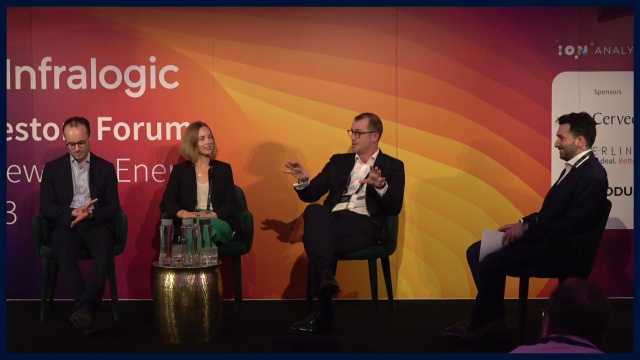 play_arrow
play_arrow





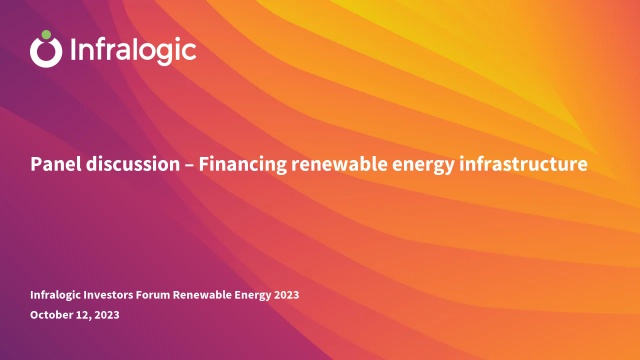 play_arrow
play_arrow
















